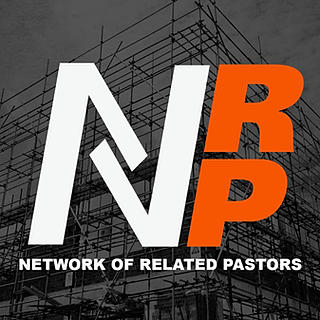Leadership in Context Episode 106 Show Notes
- NRP
- Sep 22, 2020
- 3 min read

What Does Covenant Look Like? Pt1
Leadership in Context with Keith Tucci
Episode 106
2 Samuel 7:1-7
Now it came about when the king lived in his house, and the Lord had given him rest on every side from all his enemies, that the king said to Nathan the prophet, “See now, I dwell in a house of cedar, but the ark of God dwells within tent curtains.” Nathan said to the king, “Go, do all that is in your mind, for the Lord is with you.” But in the same night the word of the Lord came to Nathan, saying, “Go and say to My servant David, ‘Thus says the Lord, “Are you the one who should build Me a house to dwell in? For I have not dwelt in a house since the day I brought up the sons of Israel from Egypt, even to this day; but I have been moving about in a tent, even in a tabernacle. Wherever I have gone with all the sons of Israel, did I speak a word with one of the tribes of Israel, which I commanded to shepherd My people Israel, saying, ‘Why have you not built Me a house of cedar?’”’
The Situation: David has been at war. David has inherited the kingdom, and years have passed. Things are going well, and Israel is prospering. David called Nathan the prophet in. David told him that he wanted to build the Lord a house, and Nathan agreed that it was a good idea. After that, God spoke to Nathan, and Nathan delivers the message to David that God did not ask David to build Him a house.
What does covenant look like? Not just the theology, but what does it actually look like?
COVENANT PEOPLE GO BEYOND what is expected or demanded of them. God said to David (through Nathan), “I didn’t ask you to do that.” A covenant person doesn’t have to be asked to do everything.
Covenant leaders go beyond what is expected.
Soldiers go beyond what is expected.
Husbands go beyond what is expected.
Dads go beyond what is expected.
Disciples go beyond what is expected.
When you are in a covenant relationship with someone, they do not have to be asked to do everything. They look at life from the blessings they have. David has come through so many wars, he’s had a horrific relationship with the man who was supposed to mentor him (Saul), and he is looking to do something for God because he recognized that he had a great house, but God did not. That is the heart of a covenant person. A covenant person looks around and says, “Why has God blessed me, and what am I going to do with it?”
A covenant person does not want to do the minimum. David was extravagant, in the good sense, in his love, against his enemies, for his friends, and in the way he worshiped God. He was out of the box. He created new boxes for the Lord to fill.
What are you being dutiful in, that God is blessing to a degree, but it is an area where He wants you to go beyond?
1. Giving is a great example of this. We set a tithe, 10%, as the standard. Tithing isn’t even giving; it’s a response. Once we get to 11%, now we have started to give. We have set this low standard, and we are doing this duty (even out of a desire to honor God), but we’ve put a cap on it.
2. Serving
3. Relationships: What good relationships do you have right now that God wants to be a great relationship? People who are close to you want you to read their mind and know what they want from you. That’s not all bad, although tricky to navigate. It needs to be communicated that at a covenant level, they have given you an open door into their life and want you to have an open door, too. People are looking for relationships that invade their sphere.
Covenant people go the extra mile. David asked, “What can I do for God?” Because he asked that question, he went the extra mile.
Where is God calling you to go beyond?
Join us next week as Keith Tucci continues to put leadership truth in the context of the local church. And as always, please like, share, rate/review, and invite others to listen. See you next week!







Comments